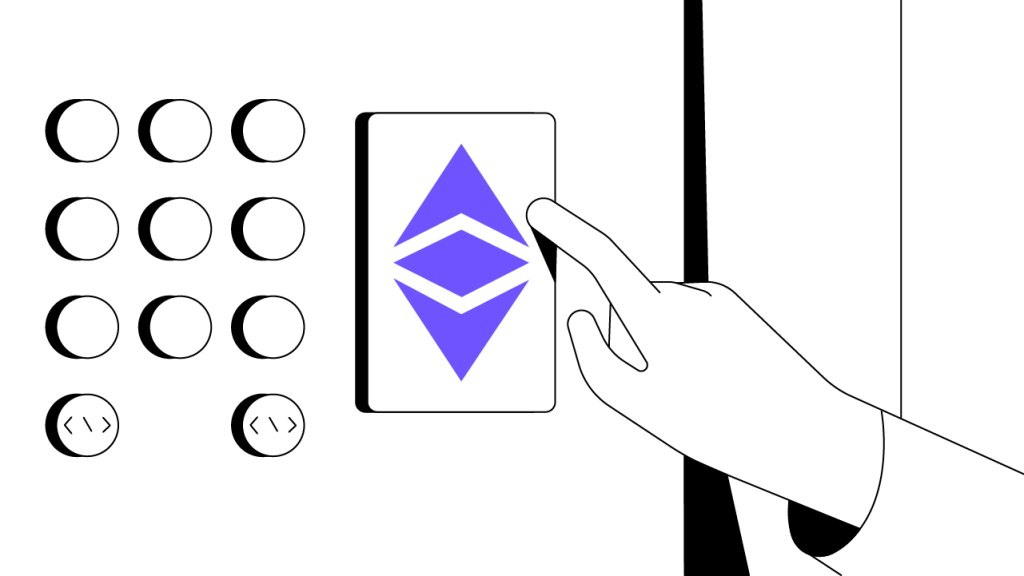Aixuze Insights
Explore the latest trends and insights on diverse topics.
Ethereum: The New Gold Rush Without a Pickaxe
Discover how Ethereum is the new digital gold rush—no pickaxe required! Dive into the future of wealth and innovation today!
Understanding Ethereum: The Basics of the Smart Contract Revolution
Ethereum is a decentralized platform that enables developers to build and deploy smart contracts.
These contracts are self-executing agreements with the terms of the agreement directly written into code, eliminating the need for intermediaries. The Ethereum blockchain uses its own cryptocurrency, Ether (ETH), to power these transactions and incentivize participants in the network. Understanding how Ethereum functions as a base for decentralized applications (dApps) is crucial for grasping the impact of the smart contract revolution. As more businesses explore the potential of this technology, the demand for skilled developers familiar with Ethereum is skyrocketing, making it essential for tech enthusiasts and entrepreneurs alike to stay informed.
At its core, the smart contract revolution signifies a shift towards greater transparency and efficiency in various industries, including finance, real estate, and supply chain management. With their ability to automate processes, smart contracts reduce the possibility of human error and fraud, fostering trust among parties involved. For those looking to delve deeper into practical applications of Ethereum, resources such as the official Ethereum website and CoinDesk offer valuable insights. As the technology matures, understanding the fundamentals of Ethereum will be vital for anyone aiming to leverage its potential for innovation and change.

Is Ethereum the Future of Finance? Exploring Its Potential
As we delve into the question of Is Ethereum the Future of Finance?, it's crucial to understand the unique features that set it apart from other cryptocurrencies. Ethereum is not just a digital currency; it is a decentralized platform that enables developers to build and deploy smart contracts and decentralized applications (dApps). This capability positions Ethereum as a versatile tool in the financial landscape, potentially revolutionizing how transactions and contracts are processed. According to a report from Forbes, Ethereum’s smart contracts facilitate automatic execution of agreements, which reduces the need for intermediaries and can lead to significant cost savings.
The potential impact of Ethereum on the finance sector is substantial, particularly in areas like decentralized finance (DeFi). DeFi platforms built on Ethereum allow users to borrow, lend, and earn interest on their digital assets without relying on centralized banks. As highlighted by Investopedia, the DeFi ecosystem has seen explosive growth, with billions locked in various protocols. This surge indicates a growing trust in Ethereum’s infrastructure and its ability to provide a more accessible and inclusive financial system for users globally. If Ethereum continues to evolve and gain mass adoption, it may indeed shape the future of finance in unprecedented ways.
How to Invest in Ethereum: Strategies for the Modern Gold Rush
As the modern gold rush unfolds in the digital world, investing in Ethereum has become a lucrative opportunity for those looking to diversify their portfolios. To begin with, it’s essential to understand the foundational aspects of Ethereum and its unique capabilities. Unlike Bitcoin, which primarily serves as a digital currency, Ethereum enables developers to create decentralized applications (dApps) through smart contracts. This functionality is a key reason why many investors are flocking to Ethereum. To get started, consider opening an account with reputable cryptocurrency exchanges such as Coinbase or Binance where you can buy and sell Ethereum easily.
Once you have acquired some Ethereum, it is crucial to develop a robust investment strategy. Diversifying your investments is a fundamental principle in finance, and this applies to cryptocurrency as well. Here are a few strategies to consider:
- Hold Long-Term: Many investors purchase Ethereum with the intention of holding onto it for years, betting on its long-term potential.
- Dollar-Cost Averaging: This involves investing a fixed amount of money into Ethereum at regular intervals, which can mitigate the effects of market volatility.
- Explore DeFi: Decentralized finance (DeFi) offerings on the Ethereum network allow you to lend, borrow, and earn interest on your assets, maximizing your investment potential.
For a deeper dive into these strategies, you can check out this comprehensive guide on Investopedia which covers effective methods for navigating the Ethereum landscape.